Nitay Alon
Proceedings of 1st Workshop on Advancing Artificial Intelligence through Theory of Mind
Apr 28, 2025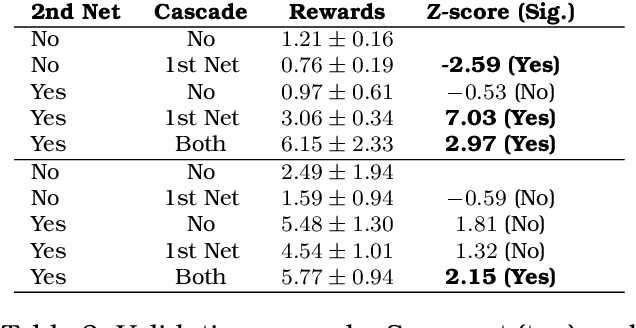


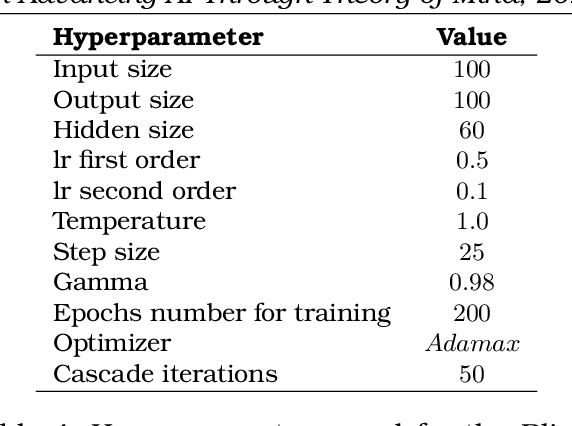
Abstract:This volume includes a selection of papers presented at the Workshop on Advancing Artificial Intelligence through Theory of Mind held at AAAI 2025 in Philadelphia US on 3rd March 2025. The purpose of this volume is to provide an open access and curated anthology for the ToM and AI research community.
All You Need is Sally-Anne: ToM in AI Strongly Supported After Surpassing Tests for 3-Year-Olds
Mar 31, 2025Abstract:Theory of Mind (ToM) is a hallmark of human cognition, allowing individuals to reason about others' beliefs and intentions. Engineers behind recent advances in Artificial Intelligence (AI) have claimed to demonstrate comparable capabilities. This paper presents a model that surpasses traditional ToM tests designed for 3-year-old children, providing strong support for the presence of ToM in AI systems.
Mind Your Theory: Theory of Mind Goes Deeper Than Reasoning
Dec 18, 2024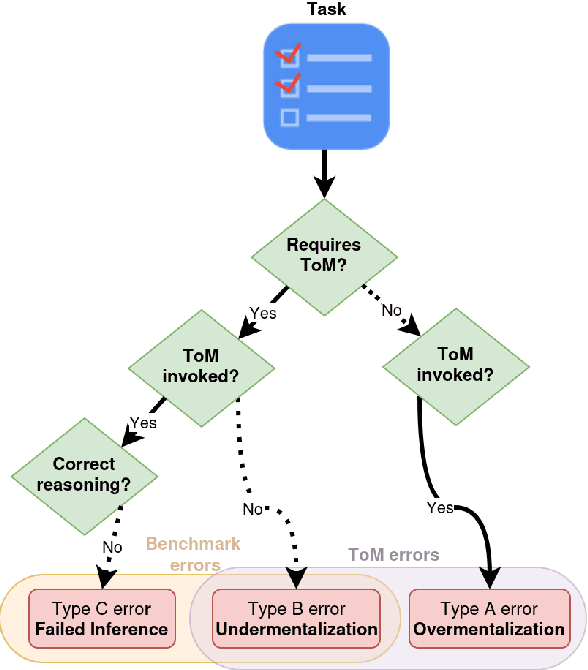
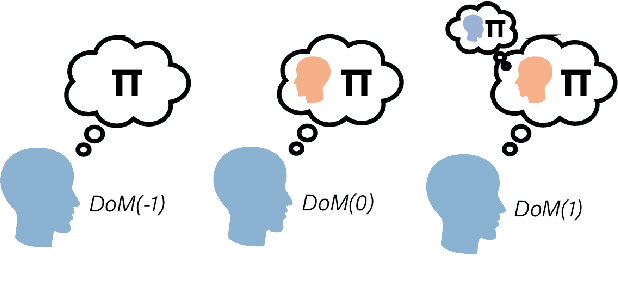
Abstract:Theory of Mind (ToM) capabilities in LLMs have recently become a central object of investigation. Cognitive science distinguishes between two steps required for ToM tasks: 1) determine whether to invoke ToM, which includes the appropriate Depth of Mentalizing (DoM), or level of recursion required to complete a task; and 2) applying the correct inference given the DoM. In this position paper, we first identify several lines of work in different communities in AI, including LLM benchmarking, ToM add-ons, ToM probing, and formal models for ToM. We argue that recent work in AI tends to focus exclusively on the second step which are typically framed as static logic problems. We conclude with suggestions for improved evaluation of ToM capabilities inspired by dynamic environments used in cognitive tasks.
Emergent Dominance Hierarchies in Reinforcement Learning Agents
Feb 01, 2024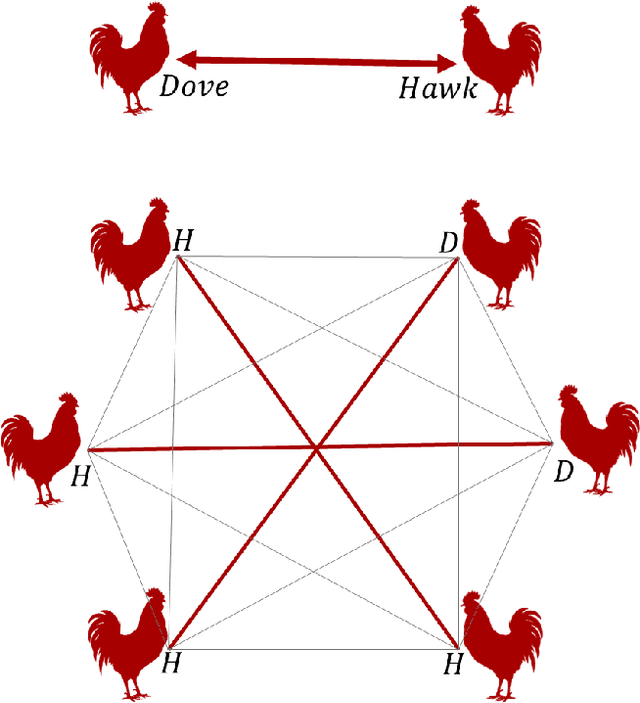
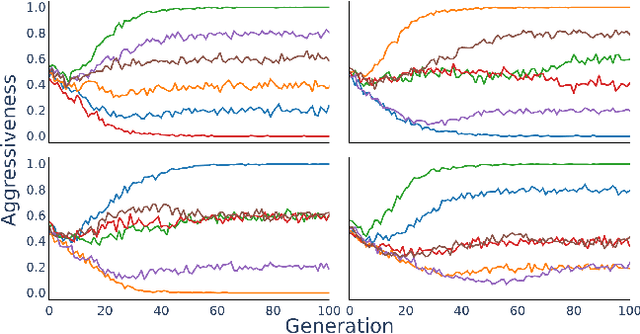
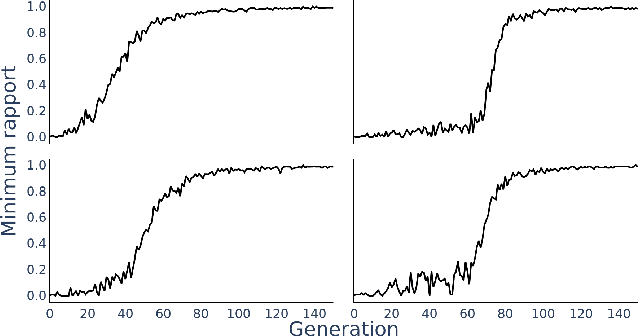
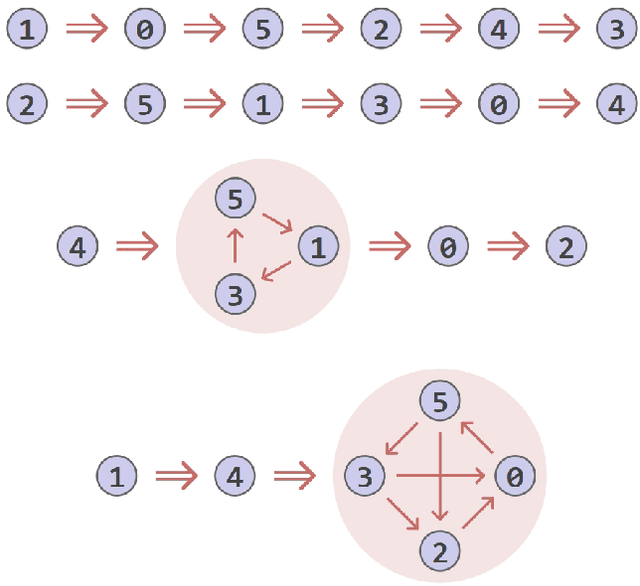
Abstract:Modern Reinforcement Learning (RL) algorithms are able to outperform humans in a wide variety of tasks. Multi-agent reinforcement learning (MARL) settings present additional challenges, and successful cooperation in mixed-motive groups of agents depends on a delicate balancing act between individual and group objectives. Social conventions and norms, often inspired by human institutions, are used as tools for striking this balance. In this paper, we examine a fundamental, well-studied social convention that underlies cooperation in both animal and human societies: dominance hierarchies. We adapt the ethological theory of dominance hierarchies to artificial agents, borrowing the established terminology and definitions with as few amendments as possible. We demonstrate that populations of RL agents, operating without explicit programming or intrinsic rewards, can invent, learn, enforce, and transmit a dominance hierarchy to new populations. The dominance hierarchies that emerge have a similar structure to those studied in chickens, mice, fish, and other species.
 Add to Chrome
Add to Chrome Add to Firefox
Add to Firefox Add to Edge
Add to Edge